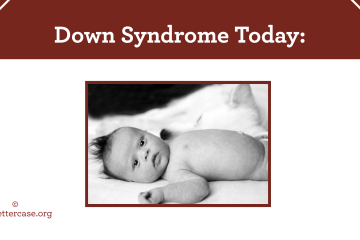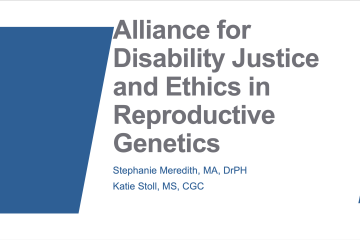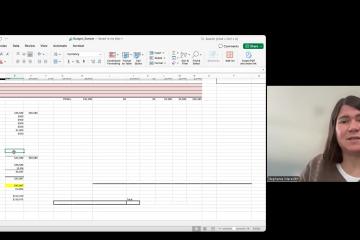In this week’s Medical Outreach Meeting, we discussed how to communicate with different cultural groups in your area. Watch a recording of this meeting below and read on to access helpful links!
New Languages added to Understanding a Down Syndrome Diagnosis
In today’s meeting, we announced that Understanding a Down Syndrome Diagnosis is now available in German, Nepali, Swahili, and Ukrainian! These translations add to its growing list of available languages: English, Arabic, Chinese, Japanese, French, Korean, Russian, Somali, Spanish, and Vietnamese. All Lettercase resources translations are carried out by translators certified by the American Translation Association and include links to associations in native countries.
Understanding a Down Syndrome Diagnosis is a Lettercase booklet made in collaboration with representatives of the national medical, genetics, and patient advocacy organizations to support new and expectant parents of children with Down syndrome. This resource provides up-to-date information on Down syndrome diagnosis, medical care, social support, and more. Click the button below to check out this resource and explore the languages!
If you are interested in supporting families in other languages, watch Dr. Stephanie Meredith’s presentation on how to find resources in a person’s native language:
PCORI Project Findings
Dr. Stephanie Meredith presented on recommendations for community outreach based on findings from a Patient-Centered Outcomes Research Institute (PCORI)-funded project that held community conversations with patient advocacy leaders and Black and Hispanic parents of children with Down syndrome.
Recommendations from this project include:
- Participate in community outreach activities such as cultural events and festivals like Juneteenth and Cinco de Mayo
- Reach out to community groups like churches and faith communities, schools, La Leche, women’s groups, and Black sororities to distribute materials and offer presentations
- Hold events such as health fair events and conferences that are accessible to communities of color
- Create a slide deck to be used for community presentations using plain language and representative photos
- Engage in outreach to health departments and early intervention programs with guidance on communicating a new diagnosis
- Use social media platforms and communication services like WhatsApp
See below for the full list of recommendations for advocacy communities:
Successful Outreach at the Massachusetts Down Syndrome Congress
Dr. Stephanie Meredith shared an interview recording with Tatiana Salinas, a bilingual Family Support Specialist at the Massachusetts Down Syndrome Congress. Tatiana shared examples of their successful outreach programs, including:
- Outreach programs specific to Spanish-speaking, Portuguese, and Black families
- Support group for Spanish-speaking families with children under 10 to connect with other families
- Events helping Spanish-speaking families navigate educational and medical support
- Active WhatsApp group that allows Spanish-speaking families to share milestones and ask questions
Successful Outreach at the Down Syndrome Association of Houston
Ana Ortiz, Program Coordinator and Bilingual Psychologist at the Down Syndrome Association of Houston, shared incredible successes from their outreach initiatives. Ana runs the Hear and Here program, which provides a safe space for families to share their experiences, get support, and learn effective strategies in both English and Spanish. Ana shared that this program has helped a remarkable 87 people so far!
Ana also shared that the Down Syndrome Association of Houston provides welcoming bags to families who have just had a baby with Down syndrome, which include brochures and local resources in English and Spanish. Ana schedules a meeting with these families immediately so they receive support right away.
In addition, Ana exemplified the importance of providing information in multiple languages by sharing that, since they began sending emails in both English and Spanish, their Christmas celebration jumped from 30 to 200 participants!


